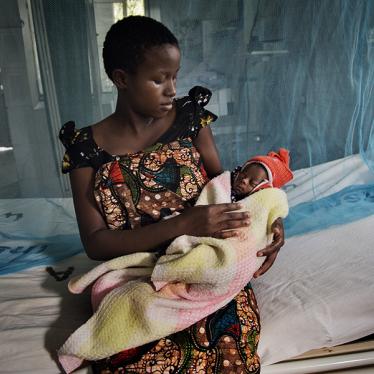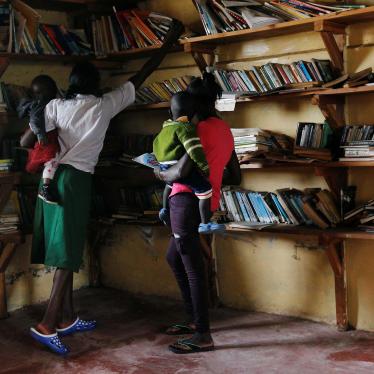The Sierra Leone government should prioritize the views and experiences of girls to advance its education reforms, Human Rights Watch and Purposeful said in a report released today. Despite the government’s important progress on access to education for girls, many girls who are pregnant, living in poverty, or in rural areas remain at risk of exclusion from school.
On April 24, 2023, Sierra Leone’s parliament enacted the Basic and Senior Secondary Education Act, 2023, which incorporates some elements of its groundbreaking 2021 National Policy on Radical Inclusion in Schools. The policy explicitly acknowledged that pregnant girls, young mothers, and other groups are systematically excluded from school. Until 2020, the government had banned pregnant girls from schools. Sierra Leone has one of the highest rates of teenage pregnancies in the world, and rates are highest among girls living in poverty.
“The new Education Act is a landmark moment for girls’ access to education in Sierra Leone, but the powerful social, cultural, and political factors that have kept pregnant girls out of school won’t change overnight,” said Chernor Bah, co-founder and co-CEO of Purposeful. “As the government celebrates on the national and global stage, we are optimistic but deeply cautious. We will join in those celebrations when we know, directly from girls themselves, that that they can enroll in school and complete their education without hindrance.”
Human Rights Watch interviewed girls and young women in Sierra Leone’s Northern Province for the report, and on Purposeful contributed surveys, interviews, and reporting based on their work to support and build girls’ power, in particular out-of-school girls, across the country.
Human Rights Watch and Purposeful examined the obstacles that many girls, in particular pregnant girls and young mothers, often face when trying to access education. These include discrimination based on pregnancy, stigma, bullying, poverty, and lack of access to childcare. Girls overwhelmingly said that they want to go to school and complete their education.
Poverty not only keeps girls out of school, but it can also be a factor in their early pregnancies. Numerous girls said they felt pressured or coerced into having sex with men who promised to provide them food, clothing, or other material support.
A 17-year-old girl, who gave birth when she was 14, said that she dropped out of school and got married after learning she was pregnant. “I was going to school, but I didn’t get [financial] help, so I decided to marry instead of being out on the streets,” she said. “I’m not happy because the man cannot provide everything … and I have no education or skill to help myself.”
Girls and young women also face barriers accessing contraception and accurate information about contraception.
When girls experience a supportive environment, they find it easier to remain in school, Human Rights Watch and Purposeful said. A 16-year-old girl in secondary school described the support of her counselor: “I was stressed going to school when pregnant. She encouraged me. She also shared her story of being pregnant when she was in school. [She] says she was chased away, and she encouraged me [to stay].”
In the past several years, the Sierra Leone government has stressed that education is a national priority. In August 2018, it introduced the Free Quality Education Programme, which aims to reduce financial barriers to accessing education, including abolishing school and exam fees, while also increasing access to school meals programs. It also significantly increased public spending on education.
The United Nations Convention on the Rights of the Child ensures the right to free and compulsory primary education. The African Charter on the Rights and Welfare of the Child calls on countries to “take all appropriate measures to ensure that children who become pregnant before completing their education shall have an opportunity to continue their education on the basis of their individual ability.”
“To make good on its promises that all girls can go to school, Sierra Leone’s government will need too simultaneously address poverty, sexual and reproductive health, and exploitation risks,” said Regina Tamés deputy women’s rights director at Human Rights Watch. “To be effective, the government should listen closely to girls and civil society groups who support them to know firsthand what girls need to go to school, graduate, and use their education for brighter futures.”








